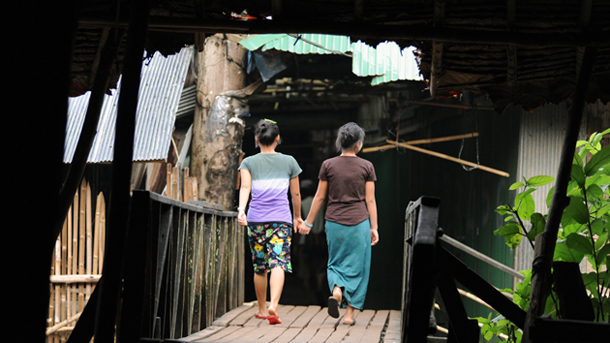A workshop in Mae La refugee camp by the Thai-Burmese border has set the groundwork for the possible repatriation of displaced civilians—perhaps by 2015.
There are more than 150,000 Burmese refugees living in nine camps by the Thai border with Mae La, the biggest, housing a population of around 45,000. Most residents are ethnic Karen who live in Thailand after fleeing persecution in the homeland.
Attended by more than 30 representatives from community-based organizations (CBOs), the workshop was the first in a series organized since reports emerged that Thailand planned to shut down the frontier camps and voluntarily repatriate inhabitants as Burma begins to open up.
The United Nations High Commissioner for Refugees (UNHCR) is looking at a three-year timeline before actual repatriation commences. The current focus is on preparedness, although the Thai Army is actually pushing for a much quicker procedure, according to a local nongovernmental organization (NGO) source who asked to remain anonymous.
“The UNHCR is in the early stages of developing principles for the voluntary repatriation of Burmese living in camps in Thailand,” said the source. “At the moment, they are seeking feedback from relevant Karen groups on the subject of voluntary repatriation to Burma.”
There are high levels of anxiety amongst refugee groups in relation to repatriation and also landmines littering their abandoned hometowns. Currently Danish Church Aid has undertaken a mapping project for the purposes of demining, according to the source.
NGOs such as the Thailand Burma Border Consortium have joined the UNHCR in assisting the Mae La repatriation workshop that was attended by representatives from seven refugee camps. The training started on Tuesday and will end on Thursday, according to local sources.
Rev. Robert Htway, the chairman of the Karen Refugees Committee (KRC), said that the workshops aim to familiarize CBO representatives with the resettlement process before its actual commencement.
The workshop included discussions and brainstorming activities between CBO representatives and relevant refugee groups regarding how repatriation should be conducted and what is necessary for the returnees, said a participant.
Despite there not being any timeframe for refugees to return, some men have already left their families in the Thai camps to visit their former homes and observe the current conditions there. Some went to repair their paddy fields, houses and plantations as well as map the area, according to refugee sources.
The repatriation workshops come amid negotiations between the Burmese government and ethnic rebel Karen National Union (KNU) towards ending their decades-long conflict and achieving a sustainable internal peace.
Burmese refugees have been living on Thai soil for around 25 years, ever since they were forced to abandon their homes due to countless civil wars between central government troops and rebel armies.
Apart from refugees on the Thai side of the border, there are also around 200,000 internally displaced persons who have lived in temporary shelters in the KNU-controlled jungle for decades due to the fighting, according to the KRC.
















